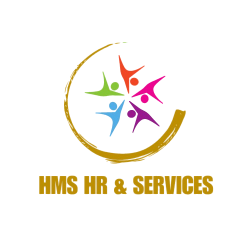However, based on practical implementation and audit results, several limitations and inadequacies in the Accounting Law and accounting practices in Vietnam have surfaced. These issues require amendments to meet the demands of an open market and international integration:
Vietnam is planning to adopt IFRS and amend national standards towards IFRS. However, there is a lack of a legal framework recognizing IFRS application, and conflicts between financial mechanisms and accounting standards still pose difficulties for companies in preparing and presenting financial statements.
Criteria Comparison:
| IFRS | VAS |
| System of standards and related regulations | Includes accounting standards and guiding documents. No specific regulations on application forms. |
| List of standards | Covers multiple standards on a variety of topics. |
| Fair value | Utilizes fair value in most cases with extensive related guidance. |
| Components of financial statements | Includes: 1. Statement of financial position, 2. Profit or loss and other comprehensive income, 3. Cash flow statement, 4. Notes to the financial statements, 5. Statement of changes in equity. |
| Presentation and disclosure | Requires full and detailed disclosure and presentation. |
The digital revolution and the need for digitization, particularly digital transformation, mean the current Accounting Law is not fully aligned with reality, especially regarding the regulation of economic transactions conducted electronically.
Existing Problems:
-
The Accounting Law is not synchronized with the Law on Electronic Transactions and related legal regulations, especially in terms of electronic accounting records, preparation and storage of documents, and electronic signatures.
-
The regulation on recognizing assets and liabilities at fair value at the end of the financial reporting period, though aligned with international practices, faces significant challenges in practical implementation.
-
Regulations covering accounting tasks from documentation, accounts, and ledgers to qualifications for accountants and chief accountants need further review and adjustment.
Challenges:
-
IT infrastructure limitations: Investment in IT infrastructure in Vietnam’s accounting and auditing sectors has not kept pace with new trends and has not received adequate attention. However, developing a comprehensive digital infrastructure is not something that can happen quickly, while the adoption of technology in accounting and auditing is progressing rapidly.
-
Shortage of high-quality financial and accounting personnel: In accounting, human resources play a critical role as specialized knowledge is closely linked to the interests of various stakeholders.
-
Misalignment between outdated thinking and corporate culture with digital innovation: Traditional strategies are no longer suitable for accounting and auditing firms. Culture plays a significant role in the success of digital transformation. A new organizational culture must be established to ensure employees believe in the potential of digital transformation and are united in achieving the common goals of the business.
Objectives:
The goal is to improve the system of accounting and auditing regulations to ensure consistency, effectiveness, and efficiency, harmonizing with international standards while being suitable for Vietnam’s conditions. This objective also includes enhancing state management, developing professional organizations, the service market, and human resources in accounting and auditing to improve the quality of economic and financial information, ensure transparency, accuracy, and promote international integration.
Accounting and Auditing Strategy to 2030:
-
Review and amend regulations: Adjust the rules regarding accounting documents, ledgers, signatures, and related regulations for economic transactions in the digital environment, aligning with the practical application of information technology and the requirements of digital transformation.
-
Apply international standards: Orient towards adopting International Financial Reporting Standards (IFRS) and updating Vietnam’s Financial Reporting Standards (VFRS) while establishing a solid legal framework to ensure the recognition and presentation of financial statements at fair value. Publicize and implement the Vietnamese Public Sector Accounting Standards based on international standards and suited to Vietnamese laws.
-
Enhance legal and management aspects: Establish specific regulations for preparing state financial statements, including principles, procedures, responsibilities, and content, to ensure the accuracy and completeness of national financial information.
-
Strengthen the role of professional organizations: Improve regulations for professional accounting organizations to actively participate in formulating and reviewing policies, manage and monitor compliance with professional standards, and enhance training in professional knowledge and ethics for practitioners. Delegate professional activities according to a roadmap consistent with the law and the capacity of professional organizations, ensuring stability and legal accountability.
Harmonizing the system of accounting and auditing standards is an inevitable trend that regulatory bodies and businesses must fully understand. Fortunately, the strategies and plans for digital transformation in Vietnam's financial sector, especially accounting and auditing, emphasize this transformation throughout, helping to create a shift in awareness and action among stakeholders to meet the new requirements posed by the evolving context.









